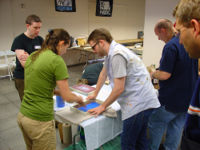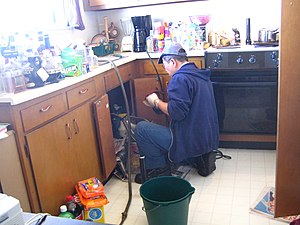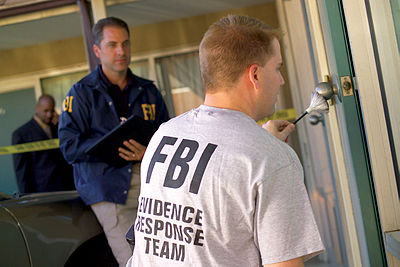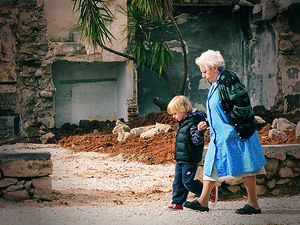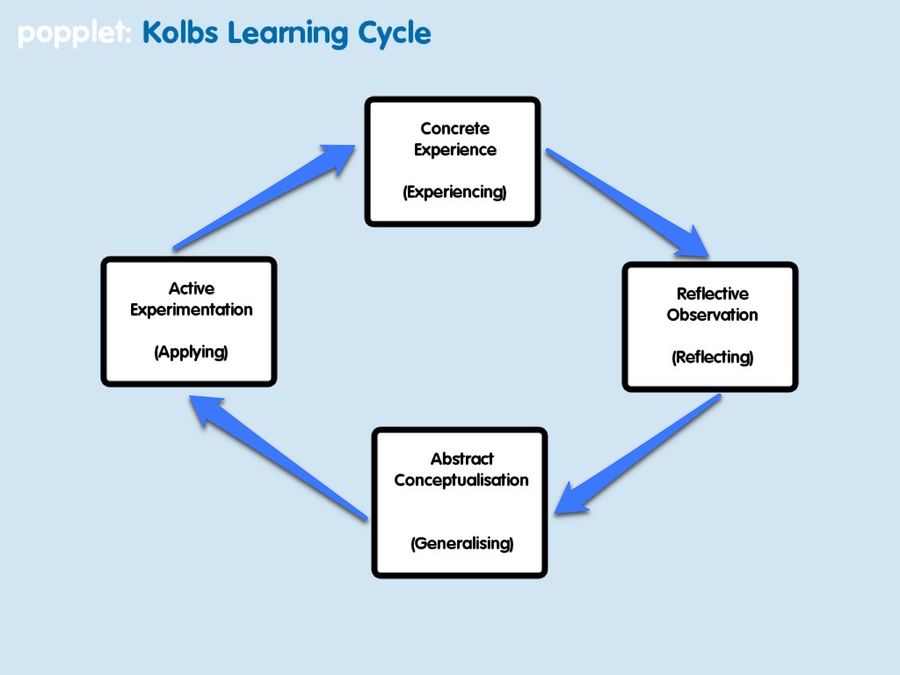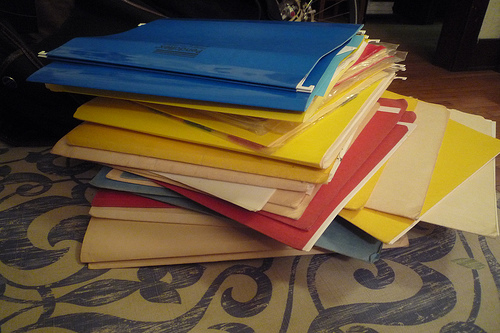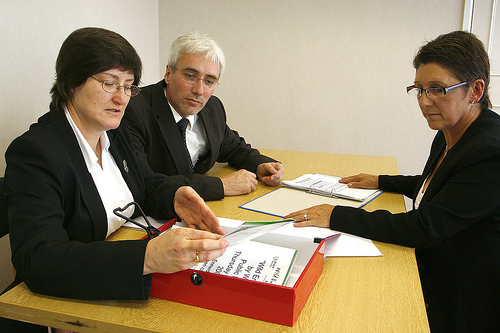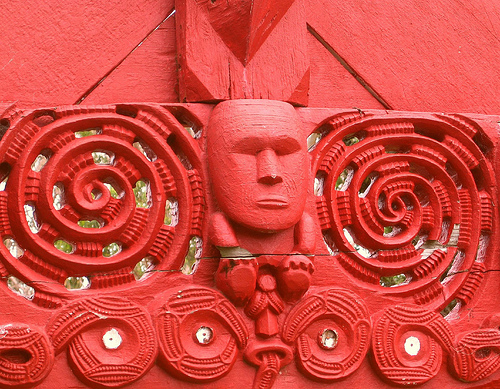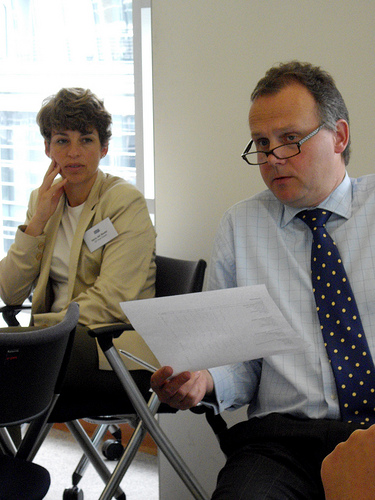Introduction to RPL
Contents
- 1 What is Prior Learning?
- 2 What does Recognising Prior Learning mean?
- 3 RPL Acronyms
- 4 Definitions
- 5 Why assess for prior learning?
- 6 Reflection
- 7 Lifelong Learning
- 8 What does learning from experience mean?
- 9 Reflection
- 10 Question
- 11 The Candidates Perspective
- 12 Portfolios
- 13 Reflection
- 14 Professional Assessment Conversations
- 15 Reflection
- 16 Question
- 17 Reflection
- 18 Diversity and Cultural Sensitiity
- 19 Question
- 20 Professional Judgements
- 21 Reflection
- 22 Reflection
What is Prior Learning?
- Prior Learning is any learning arising from previous life activities, work experience, volunteer experience, personal study or formal education.
What does Recognising Prior Learning mean?
- This is when value or credit is given to that previous learning in relation to the learning outcomes of an existing course or programme, usually occurring through an assessment process.
RPL Acronyms
Many acronyms can be found in the literature refering to the recognition of prior learning
- RPL - recognition of prior learning
- APL - assessment of prior learning
- PLA – prior learning assessment
- PLAR – prior learning assessment and recognition.
- APEL - accreditation of prior experiential learning
- ILP - independant learning pathway
As you explore further see if you can add any others to this list.
Definitions
Along with many acronyms there are also a variety of definitions. The following are differing interpretations of RPL.
Recognition of prior learning (RPL) is recognising and gaining credit for what you have already learned, and the skills you have acquired from informal learning such as:
- life experiences
- work experiences
- training courses or workshops. (Career Services)
“The APL process assesses your skills, knowledge and learning acquired through years of experience in your life and workplace." (Capable NZ, Otago Polytechnic)
"RPL has been defined in a number of ways, some more expansive than others. All definitions, however, include the key notion that RPL involves the assessment of previously unrecognised skills and of knowledge an individual has acquired outside the formal education and training system. The process of RPL assesses hitherto unrecognised learning against the requirements for a qualification or for a course leading to a qualification, in respect of both entry requirements and outcomes to be achieved." (Sheridan, I., & Linehan, M. 2009, p.5)
Why assess for prior learning?
The following activities and reflection will help you explore why prior learning is recognised in the tertiary setting.
| Look at the following documents as a starting point for considering the advantages and disadvantages of RPL.
Recognition of Prior Learning (RPL) read the section entitled What are the benefits of recognising prior learning? . And What are the benefits of RPL? Explore the internet and any other sources available to seek more information on this topic.
|
| Consider What are the advantages and disadvantages of RPL in the workplace?
Consider the process of assessing for prior learning from the perspective of being a facilitator or an assessor, exploring the following areas:
|
Evidence - What is it?
Proof of knowledge and competence
“‘Evidence’ is the term used to describe the proof that you will present that you really know and can do what you claim. There are many different kinds of evidence and you will want to make sure that the evidence you use to prove your competence really does just that” (Simosko,1992, p65).
Categories of evidence
Evidence is generally divided into 2 main categories:
Direct and Indirect Evidence
Direct evidence includes anything that you yourself have produced. Some examples include reports you may have written, garments you may have sewn, drawings you may have created, engines you may have repaired, spreadsheets you have produced – anything that is the direct result of your effort.
Indirect evidence includes anything about you that tells or describes what you have done. Some examples include newspaper articles about your accomplishments, letters from past or current employers or associates, photographs of a piece of furniture (or anything else) you may have built, certificates from previous training courses, etc.
- (Simosko, S. 1992. p65-66.).
Key Principles to determining evidence
There are 4 essential key principles in deciding on appropriate evidence to be used when assessing prior learning.
- Relevance
- Currency
- Sufficiency
- Authenticity
Relevance How clearly does your evidence link to the learning outcomes or required standards that are being demonstrated?
Currency Is the evidence supplied recently applicable to your skills and knowledge. The learning may have occurred a long time ago but are the skills and knowledge being currently maintained by the candidate seeking RPL.
Sufficiency Is there enough evidence of prior learning without being too much to overwhelm the assessor? Also required is a variety of evidence to demonstrate the learning.
Authenticity It needs to be clear beyond a reasonable doubt that the evidence presented is that of the candidates learning, knowledge and skills and not someone else’s work.
- (Simosko, 1992)
Simosko’s book referenced below offers excellent examples of the above key principles on pages 65 to 68.
Type and nature of evidence
The requirements of the qualification being sought tend to determine the type and nature of evidence that is required. As mentioned above the relevance of the evidence to the learning outcomes or expected standards of a qualification is key to choosing which evidence will be presented.
This evidence of prior learning may come in a wide variety of forms:
- work records
- skill validations
- performance appraisals
- training records
- certificates of attendance/achievement
- course outlines
- content descriptions
- course assessments
- practice-based documents
- reports on observations of practice
- video/audio tapes, with commentary and analysis related to achievement of learning outcomes
- analytic and evaluative description of practice
- statements from supervisors in relation to aspects of practice
- verified attestations
- authentic artifacts
- endorsed photos of work produced
- references/letters from previous employers
- industry awards
- physical demonstration of a skill
- third party attestations
- challenge tests
| Consider what other forms of evidence that you can add to this list that are particularly relevant to your area of work.
Also refer to chapter 3 in the NZQA booklet Learning and Assessment for thoughts on sources of evidence and how they are used. Focus
|
Lifelong Learning
We hear the term often enough but what does it really mean?
Lifelong learning - "the provision or use of both formal and informal learning opportunities throughout people's lives in order to foster the continuous development and improvement of the knowledge and skills needed for employment and personal fulfilment (Collins English Dictionary)
So if we are continuously developing and improving our skills how can we identify at any given point in time that we have learned from our previous experience?
What does learning from experience mean?
"Learning from experience is different from 'formal learning': it is largely unstructured; it is more personal, more individualised and is often unconsciously gained. It is, however, just as real as learning which is gained in a formal academic setting. What is more, it is usually more permanent: it is not readily forgotten or lost." (VaLEx, 2005, p 5).
To gain learning from an experience involves a process that creates meaning from the experience.
This process has been described by Kolb as the Experiential Learning Cycle
this involves:
- 1. having an experience or an event occuring (doing/having an experience)
- 2. reflecting on and thinking about the event (reviewing/reflecting on the experience)
- 3. generalising about the experience (concluding/learning from the experience)
- 4. applying the ideas in new situations (planning/trying out what you have learned)
Reflective Observation
The key part to learning from experience is reflection
"Learning through reflection is a skill that involves thinking about our own experiences from the past, thinking about our feelings about those experiences and drawing out some of the lessons that we have learned from those experiences." (SCQF, 2010, p 29)
"Reflection enables the integration of new experiences and understanding with previous or existing knowledge and skills. It can therefore be a transformative process." (SCQF, 2010, p 21)
| Find out more about Experiential Learning and Reflection
|
The Candidates Perspective
A candidate can undertake an RPL process for a variety of reasons including- identifying learning gained to then build on this learning in order to meet future goals
- demonstrating prior learning for entry into into courses where the required entry qualifications are not held
- to demonstrate that the skills and knowledge required to achieve a course or components of a course within a programme have previously been achieved
- to gain a full qualification based on prior and current knowledge, skills and learning
In the previous material you were asked to consider:
What questions could you ask someone to help them reflect on their own experience?
Some possibilities could include:
- What did the experience involve?
- What happened?
- What were your thoughts and feelings?
- How did it affect you and others?
- What skills did you use?
- Did you have those skills before or are they new?
- What knowledge did you need? Was this new or previously held?
- What did you learn from the experience?
- What can you take from this experience and use in other ways?
The learning that comes from any experience is individualized to the learner.
Two people may have done the same job but it is the learning gained through that job that is important and may be quite different for each person. This is where reflecting on your previous experience is important and exploring what you have learnt from that experience including how you will use your learning in similar or more challenging situations.
Recognising skills and learning
Sometimes because we take things for granted it can be difficult to recognize the skills and learning within the experiences we have.
Example
The Scottish Credit and Qualifications Framework Partnership (2010) provide an example of this that is expanded upon here
Identify a job that you have down or a role that you have held?
- Working in a pub
What skills did you need for this ?
- negotiating skills, verbal and non-verbal communication, written communication, planning, prioritizing, team work, managing conflict, money handling, using eft-pos and electronic tills
What knowledge did you need for this?
- knowledge of various drinks and appropriate serving glasses, recipes and cocktail mixes, currency and mathematics, legal requirements and expectations in relation to alcohol, effects of alcohol, factors that can affect communication,
What did you learn?
- This may include: How to mix and serve drinks, how to diffuse potentially volatile situations, how to listen to customers, how to prioritize and provide effective customer service in a busy environment,
What evidence can you provide of your learning and experience?
- This may include: Letters of reference from Manager or colleagues, testimony or feedback from customers, exemplars from practice, willingness to undertake practical demonstration, video of practice
The scenario above provides a useful process to uncovering the learning involved.
RPL Profiling Tools
RPL profiling tools utilize this process and develop this further by identifying courses or learning outcomes that the learning relates to and then explore whether further action or learning is required.
An RPL profiling tool adapted from The Scottish Credit and Qualifications Framework Partnership (2010)
This is a useful tool when exploring previous experience leading to a qualification.
Matching Evidence to Learning Outcomes
The same areas can be explored in a different sequence when investigating whether you already have the skills and knowledge identified as the learning outcomes for a specific course.
In this situation you might start with the learning outcomes and use the following sequence
Consider the following questions:
|
Portfolios
Portfolios are useful tools that can have a variety of purposes.
- They can be used for development - tracking growth or change over time, showing progress in relation to goal setting or enabling strengths and weaknesses to be identified.
- They can be used for presentation - showcasing or demonstrating work outcomes/projects or identifying successful achievements.
- They are also effective tools for assessment - demonstrating progress, achievement and attainment of outcomes.
When it comes to assessment of prior learning portfolios are an effective tool to collate and demonstrate evidence of prior learning. They can show what a candidate knows and how that learning was acquired. Through the use of a portfolio a candidate can demonstrate that they are "capable of critical analysis and synthesis and of conveying ideas clearly" (Benton,N. (1995). Recognition of prior learning: A personal guide to developing your portfolio. Wellington: New Zealand Council for Educational Research. p 18.)
Traditionally portfolios have been paper based but as technology and the web develops e- portfolios have become more common.
An e-portfolio is a learner-driven collection of digital artifacts articulating experiences, achievements and evidence of learning (Galatis, Leeson, Mason, Miller, & ONeill, p. 2 Retrieved from Wodongatafe).
| Find out more about Portfolios as a tool for RPL assessment
here are some links to get you started Try a google search for "E-portfolios: an assessment tool for online courses by Robin Mason, Chris Pegler and Martin Weller
The Directory of Open Access Journalsis a useful site to search.
|
Consider the following questions:
|
Professional Assessment Conversations
A professional assessment conversation is often used as an assessment tool for recognising prior learning. The conversation is between the assessor/s and the candidate to draw out or clarify information on the candidates individual experiences and relevant skills in relation to the learning outcomes or graduate profile for which the candidate is demonstrating their prior learning. The conversation allows for additional information to be provided that may not have been included as part of the evidence presented. The assessor/s use their professional knowledge and expertise to encourage the candidate to expand upon the evidence and information provided through the types of questions asked.
Questions that are used in a professional assessment conversation are not intended as a form of test or exam but as encouragers for the candidate to express more about their prior learning and how it was acquired.
| As with any assessment method there are key principles that need to be adhered to.
What are the four key principles? answer
|
| Assessments may begin with a presentation by the candidate, and then a professional assessment conversation may occur following the presentation.This is an approach that can be used for full qualification RPL assessments. Note this is similar to many assessment practices used in a variety of disciplines.
Another approach could be using the professional assessment conversation as the main way in which prior learning is explored and this would be supported by evidence. This approach works well for the RPL of a course where the candidate prefers to talk to, outline or explain aspects of their prior learning and experience. Can you think of other ways in which a professional assessment conversation can be used? |
| Find out more about other methods of assessing prior learning
here are some links to get you started from the perspective of
|
Consider the following questions:
|
Diversity and Cultural Sensitiity
Consideration of learner diversity and undertaking a culturally sensitive approach to recognition of prior learning is essential. Learning is personal to each individual and when assessing prior learning it is important to respect the knowledge that was gained, how it was attained and the context in which that prior learning occurred for the candidate being assessed.
Nina Benton (1996) sums this up well when she says" To reach those who need it the most, RPL needs to be facilitated by people who are sensitive to cultural differences and understand the social and cultural significance of the knowledge and skills being assessed" p.
Awareness of needs for Maori learners is important in the New Zealand context as the Treaty of Waitangi has implications for a fair education system.
Benton outlines that when the assessed learning crosses cultural boundaries it is important that professional expertise is brought in to ensure cultural misappropriation does not occur. The example she highlights is assessing Maori wood carving where a tohunga in woodcarving would be the appropriate consultant for either facilitation or assessment.
Benton also highlights that it is important that the skills being assessed are viewed and assessed in a valid way and not all are assumed to be Maori knowledge. Her example is that if someone is being assessed for the teaching of Maori language, this is not specifically Maori knowledge but should be assessed as a teacher of any other language would.
| Benton (1996) states "A candidate who would feel more comfortable with a facilitator from their own culture should have that preference respected." p 34.
In a multicultural society this is not always possible. How do you think this could be addressed to achieve a more satisfactory outcome for the candidate? |
| Consider ways in which learner diversity can be acknowledged in assessing prior learning
|
Professional Judgements
Assessment of prior learning is a holistic approach that requires a much deeper level of knowledge and understanding than may be expected in a tick-box competency approach.
It is more than competency that is being assessed. It is recognition of the learning process that has lead to the development of knowledge for the candidate and it is not only assessment of skill acquisition but the understanding of knowledge in relation to that skill and the transferability of knowledge to other skills or situations.
Along with a deep knowledge of the appropriate pedagogy for the area being assessed, the assessor requires other skills such as the ability to put a candidate at ease and create an environment in which the candidate can present or perform to their optimal level.
Most importantly the key to holistic RPL assessments is making sound professional judgements to infer that competence, knowledge and learning has been demonstrated. “Making a ‘judgement call’ implies that one is being active, committed, accountable, powerful, and ethical, like a courtroom judge.”(Jones, 2006 cited in Mitchell, 2008. p.3)
|
There are many important factors to be considered by the assessor when making professional assessment judgements: These include adhering to the key principles of assessment.
Expand for a reminder of what these are.
|
|
As discussed in earlier sections consideration of the learner and the learning context are also key to the process of making professional judgements relating to learning.
|
Assessment Tools and Process
- The Assessment Process
- Levels - Assessment level are determined by curricula for example see NZQA Levels Descriptors which are used in programme development
- Tools - Assessment tools reflect the nature of the assessment - the scope, level and credits being assessed.
Reporting of Assessment Decisions
Assessment report generally has two components
- A report on the assessment activity
- Recording of the results of the assessment
Roles
- Facilitator
- Assessor
- Lead Assessor
Additional References
New Zealand Qualifications Authority.(2001).Learning and Assessment. A guide to assessment for the National Qualifications Framework. Retrieved from http://www.nzqa.govt.nz/assets/Providers-and-partners/Assessment-and-moderation/Assessment-of-standards/learningassessment.pdf
Simosko, S. (1992).Get qualifications for what you know and can do: A personal guide to APL. London: Kogan Page.
Collins English Dictionary – Complete and Unabridged © HarperCollins Publishers 1991, 1994, 1998, 2000, 2003 accessed from http://www.thefreedictionary.com/lifelong+learning
Scottish Credit and Qualifications Framework. (2010.) Facilitating the Recognition of Prior Learning: Toolkit. Retrieved from http://www.scqf.org.uk/content/files/rpl/RPL_Toolkit_FINAL_-_May_2010.pdf
VaLEx. (2005). Valuing Your Learning from Experience. A Learners Guide. Retrieved from www.valex-apel.com/content/guide_learners_rpl.doc
Benton, N.(1996).Recognition of prior learning: Rules, roles and models: Providing, advice support and mentoring. Wellington: New Zealand Council for Educational Research.
Mitchell, (2008). Confident RPL Assessors. Department of Education, Training and the Arts. Queensland Government.
